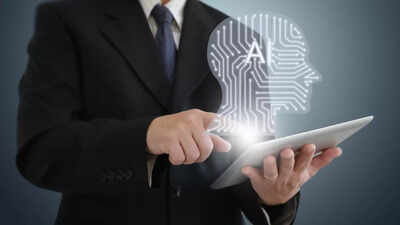AI is coming for these jobs, says Anthropic Cofounder Jack Clark; know if your job is at risk | - The Times of India

AI is coming for these jobs, says Anthropic Cofounder Jack Clark; know if your job is at risk
Artificial intelligence (AI) is reshaping the global job market at an unprecedented pace, with many roles across various industries facing potential disruption. However, not all jobs are equally vulnerable to automation. Jack Clark, the cofounder of AI company Anthropic, recently discussed the kinds of jobs he believes will be least impacted by AI during an insightful conversation on the podcast ‘Conversations with Tyler’, hosted by economist Tyler Cowen.Clark's perspective provides valuable insights into the types of professions that may remain resilient in the face of rapid technological change. His analysis covers a wide range of sectors, including skilled trades, relationship-driven office jobs, and healthcare, highlighting the complex factors that determine a job's vulnerability to automation.
Skilled trades: The resilience of personal craftsmanship
Clark emphasized that certain hands-on, artisanal trades are likely to remain relatively safe from AI disruption due to their unique reliance on human craftsmanship, creativity, and the personal touch that machines often struggle to replicate. These roles typically involve a blend of physical skill, technical knowledge, and personalized service that makes them difficult to automate effectively.1. High-skill trades
2. Aesthetic and personalised services
Office-based roles: The importance of human connections
While many routine office tasks are increasingly being automated, Clark believes that certain white-collar roles will remain relatively insulated from AI due to their reliance on trust-based human relationships and complex interpersonal interactions.1. High-level sales and client management
2. Creative and strategic work
Healthcare: The human element in medical care
Clark also touched on the complex role of
AI in healthcare
, highlighting the significant barriers to full automation in this critical field. Despite the growing capabilities of AI in medical diagnostics and patient care, human healthcare professionals remain essential for several reasons.1. Trust and human judgment
2. Regulatory and privacy challenges









